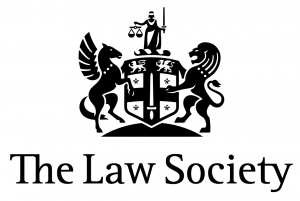Improving access to justice and upholding the rule of law are central concerns for a strong legal profession – the pro bono work solicitors contribute is an important element of this.
Access to Justice has a number of important elements; Public Legal Education, properly funded legal aid and pro bono, which must never be viewed as a substitute for legal aid in particular. We need to recognise that many of those needing legal advice are extremely vulnerable. Failure to access expert advice at the right time, risks throwing an additional burden (and cost) on other agencies.
Public funding must be available for the most vulnerable. While pro bono will never be able to meet all the unmet legal need in our communities - nor should it - solicitors providing pro bono support are mitigating some of the challenges.
I am proud to belong to a profession that makes such a fundamental contribution to society through the advice it gives free of charge to those most in need. This is not a new initiative, but speaks to the long term concern for fellow citizens, shared across the profession, irrespective of practice type.
Pro bono work changes lives and it is so often unsung. As President of the Law Society, I feel a real responsibility to raise public awareness of the pro bono work of my colleagues across England and Wales do for the benefit of the community. Your collective contribution is unparalleled in any other profession.
I am working with several pro bono organisations, including LawWorks and the Law Centres Network, learning how they bring together solicitors and individuals or charities in need of legal support but which cannot access legal aid and do not have the ability to pay for a lawyer. They provide a real lifeline to individuals, community groups and charities.
I know from my own experience that pro bono is a two-way street. It is immensely rewarding, it connects us to our communities, and we can learn so much from it, whether that means developing a secondary specialisation or refining softer skills around communication, negotiation, mentoring and other skills relevant to our day jobs.
The culture in a firm can have quite an impact on pro bono capacity. Across the country there are firms or businesses that incentivise staff to become actively involved in pro bono work. Others firms do not yet have a clear institutional commitment to pro bono services. Others provide an element of pro bono advice as a part of their mainstream practice.
Cuts to legal aid and the increase in unmet legal need have made it difficult for some practitioners and firms to deliver the pro bono advice that was either intrinsic to or subsidised by legal aid. Solicitors working in-house face different barriers that we are working to overcome.
To support firms that want to develop their pro bono work or receive recognition for what they already do, we launched a Pro Bono Charter and Manual in National Pro Bono Week in November 2016.
The Charter is a statement of commitment that firms and in-house teams are invited to sign up to and is a public commitment by legal practices to promote pro bono opportunities throughout their business, to help support this goal.
The Pro Bono Manual sets out the steps legal practices may take in order to develop a strategic pro bono programme, and includes template policies, engagement letters, memorandums of understanding as well as best practice guidance and information about strategic partners within the sector. This is intended to be a resource for practitioners. We recognise that one size does not fit all. We seek to identify unmet need, identify providers and find an effective broker to introduce one to the other.
Every year National Pro Bono Week provides a great opportunity for solicitors, barristers, chartered legal executives and law students alike to come together, with their third sector colleagues, and celebrate the pro bono work which has been carried out throughout the year. It is also a chance to discuss how we can meet the challenges facing the pro bono sector and our local communities; and how we move forward over the coming year.
Robert Bourns is the President of the Law Society. http://www.lawsociety.org.uk/support-services/practice-management/pro-bono/




